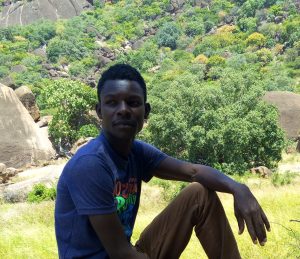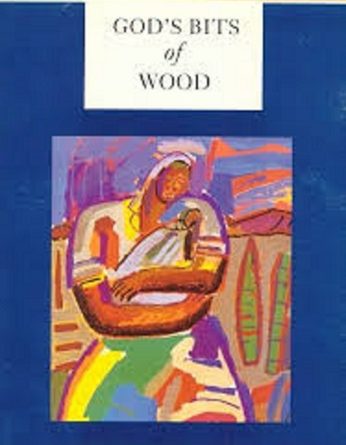How Sembene’s “God’s Bits of Wood” Mirrors Kenya’s 2017 Elections And The Struggle For Electoral Reforms
By Daniel Many Owiti
Any Kenyan reading “God’s Bits of Wood” by Sembene Ousmane this year will not fail to see how the events that happened in the book relate so much with the events that led to Kenya’s August 8 general elections and the subsequent events that led to the ouster of former Independent Electoral and Boundary Commission, IEBC Chief executive officer Ezra Chiloba. Kenyans went for elections on August 8th and less than a week later, chaos erupted in some parts of the country, especially in National Super Alliance (NASA) strongholds. This was after IEBC announced Uhuru Kenyatta as the winner of the hotly contested elections.NASA leader Raila Odinga disputed the results on the grounds that IEBC rigged the elections in favor of Uhuru Kenyatta-led Jubilee party. Many NASA supporters went on the street to air their grievances and to deny what they too termed as stolen elections.NASA leader went ahead and lodged a petition in the Supreme Court and after a rigorous legal battle, Uhuru Kenyatta’s re-election was nullified on the grounds that the IEBC did not conduct the elections in accordance with the law and ordered for another election to be conducted within 60 days as stipulated in the constitution. This gave NASA a fresh mandate to demand electoral reforms.
In the weeks to follow up to the October 26th elections, which NASA boycotted, NASA supporters led by their leaders Raila Odinga, Kalonzo Musyoka, Musalia Mudavadi and Moses Wetang’ula engaged the police in running battles across the country in their push for electoral reforms. Many NASA supporters were injured in the melee and a few were killed by live bullets, including Baby Pendo killed in Kisumu. The mounting pressure led to the removal of IEBC CEO Ezra Chiloba. These events, which are still fresh in our memories, are mirrored in Sembene’s 1960 novel “God’s Bits of Wood. Sembene writes about the 1947-1948 railway worker’s strike on the Dakar-Niger line. The workers announced for a strike which lasted more than expected. The workers, majority black natives, were tired of what they termed as poor working conditions and poor remuneration by their colonial regime controlled by white colonialists. They were tired of being oppressed. For them to return to work, they gave out conditions which they wanted the regime to meet first. Amongst their demands were a twenty per cent increase in all salaries, payment of back wages, based on the settlement with French railway workers in July 1936, family allowances, employment on pensionable terms and the contractual bonus of six thousand francs to the trainmen, at the same rate of interest paid by French trainmen.
Even though the strike caused a lot of suffering to the workers, especially the wives of the men who were working at the railway who had to go look for food while their husbands went for demonstrations and never-ending negotiations, they never gave up. They forged ahead with the strike and vowed to never return to work until all their demands were met. They engaged the government-controlled militiamen in running battles and many were felled by live bullets but they never surrendered to the oppressive regime. The women, getting tired of the slow progress of the negotiations and most probably driven by the ever-increasing hunger, mounted the biggest and most effective protest by walking all the way from Thies to Dakar, sleeping on the hard ground along the way and enduring hunger, thirst and the scorching sun. When they were approaching Dakar, militiamen and soldiers barricaded the city to prevent them from entering. The women, joined by many others who supported their cause, formed what Sembene called a human wall. He writes, “And already the pressure of this human wall was forcing the soldiers to draw back. Reinforcements began to appear, from everywhere at once, but they were not for the men in uniform. A few rifle butts came up menacingly and were beaten down by clubs and stones. The unnerved soldiers hesitated, not knowing what to do, and then some shots rang out, and in the column two people fell-Penda and Samba N’Doulougou.”
Penda (the name almost sounding like that of Baby Pendo) was the leader of the procession of women from Thies to Dakar. She was the one who mobilized the women to stage a successful protest, but like our youths who died in the struggle for electoral reforms in Kenya, she too succumbed to the brutality of the soldiers. Bakayoko, the man behind the strike, and who can be likened to NASA leader Raila Odinga, led the strikers until they achieved what they wanted (though for Raila, the fight for electoral reforms is not yet over). They carried banners with such slogans as, “EVEN BULLETS COULD NOT STOP US. “They also succeeded in dislodging the white colonialists from their posh European houses christened “the Vatican.” A case in point is Isnard, the white administrator who shot and killed three native children who were hunting for lizards in the bush. He was forcefully ejected from his “Vatican house” and his wife Beatrice shot dead in what seemed like a retaliatory attack.
And then there was an old grandmother by the name Fatou Wade who can be much likened to Rose Akinyi, popularly known as “mama chungwa.” Just like Rose, who has attended most of NASA protests and rallies, Fatou Wade would not miss anything that happened in the city Dakar. She lost her husband in the first war and her older son in the second. She also joined the women in marching into the city. Back here in Kenya, Fatou Wade represents those whose husbands, sons, wives and parents were killed during the numerous protests staged all over the country by NASA to demand for electoral reforms.

Bio: Daniel Many Owiti is a Kenyan creative writer and the founder of Eldoret Poets Association.
He writes poems, articles and short stories. He also writes opinion and news articles. His interest is in African literature and most of his poems revolve around Luo culture and contemporary issues affecting youths. He participated in the inaugural Nyanza Literary festival (NALIF-2016) where he emerged first runners-up. He has also published a number of poems in the Kenyan family magazine PARENTS and a number of opinion articles in Kenya’s leading newspaper Saturday Nation. His poem, “Haunt me well” has been published in Jalada, Africa-a Pan-African Writers’ collective. Four of his poems have also been published in the Kalahari Review. He is the founder of Eldoret Poets Association (EPA). He can be contacted via email: manydaniels09@yahoo.com





